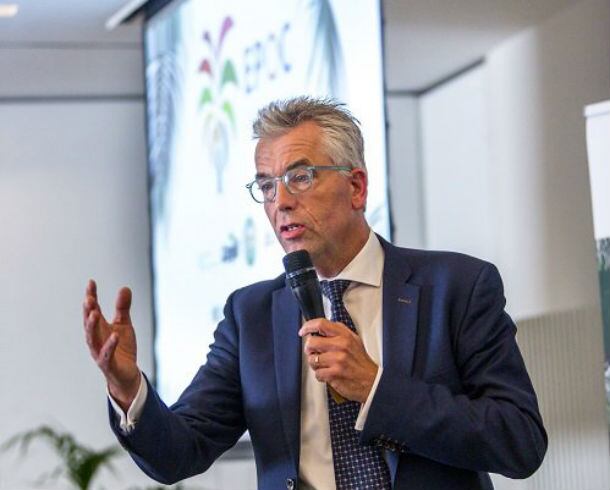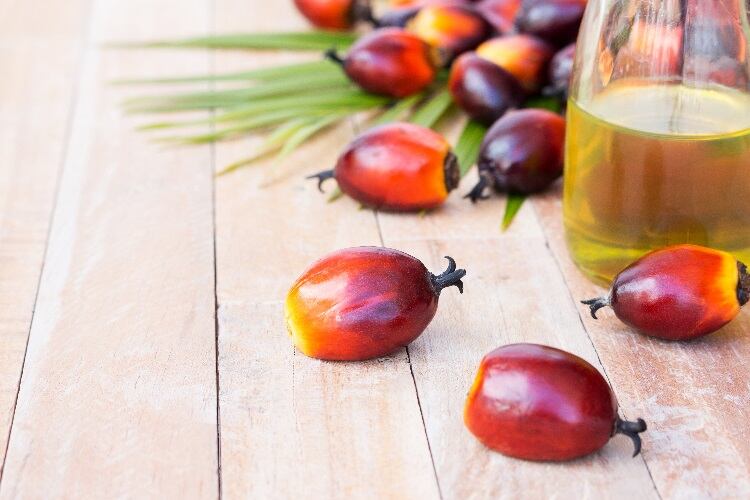The clock is ticking for the European Palm Oil Alliance (EPOA) to achieve its goal of being 100% certified by 2020, as laid out by The Amsterdam Declaration.
At its recent conference in Madrid the organization called on food companies and retailers to fulfil their commitments and use only sustainable palm oil.
“Our 2020 goal for 100% sustainable palm oil used in food in Europe is still in sight, but everybody has to put all hands on deck - time is short. We urge NGOs to take a cooperative stance to empower people that do the work on the ground and make the change possible,” said Frans Claassen, chair of EPOA and managing director, MVO - The Netherlands Oils and Fats Industry.
Negative image
Although 74% of the palm oil entering Europe for food was certified sustainable in 2017, the image of palm oil in food remains negative.
This is partly down to a lack of information, claimed Classsen, who said there was a ‘smear campaign’ of the whole industry and its good efforts are not being recognized.
He said that palm oil was not the biggest contributor to deforestation – soya and maize are bigger culprits.
“We share the same goal of sustainable production and consumption. No palm oil is no solution,” he said.
For the EPOA to achieve its 2020 sustainability target the importance of transparency is paramount, delegates were told. This involves:
- Palm oil needs to clean up supply chain.
- More actions from European stakeholders.
- Need for a positive story for UN sustainable goals.
Whereas the coffee and cocoa industries have got their act together, to a certain extent, on delivering sustainability goals and offering transparency in the supply chain, palm oil gets the bad press.
Jose Olivero, sales director at LIPSA said there is a “lack of communication to consumer” and that the industry “can’t go on like the last 25 years”.
Teresa Kok Suh Sim, minister of Malaysian Primary Industries, addressed the conference on behalf of the country’s small-holder farmers.
“It’s a terrible solution if Europe phases out Malaysian palm oil,” she said. A ban would send a negative signal to farmers. Palm oil is synonymous with poverty eradication in Malaysia.”
She said the country is doing its part on sustainability.
Under attack
But, as the discussions continued, the EPOA came under attack from outside environmental groups on social media, claiming the ‘the European Sustainable Palm Oil (ESPO) project ‘doesn’t mean anything’.
What is The Amsterdam Declaration?
It was set up in 2015 to Support of a fully sustainable palm oil supply chain by 2020
The Amsterdam Declarations are non-legally binding political commitments that aim to support the implementation of private sector commitments on deforestation and sustainable palm oil. By expanding market demand for sustainable commodities in the signatory European countries, the Declarations aim to incentivize sustainable production in producer countries.
To date, Denmark, Germany, Netherlands, Norway, the United Kingdom, Italy and France have signed the agreement.
Commodity: Palm Oil, Soy, Cocoa
Type of partnership: Demand-side measure
Project area: Europe
Current status: Implementation
The EPOA argued that ‘sustainable palm oil is an essential part of the solution to meet Europe’s food demands’.
“One of the ways to support sustainable development in producing countries is to buy special independent smallholder farmer credits. For the first time, the ESPO monitoring report also provides data on the uptake of these credits offered by the Roundtable on Sustainable Palm Oil (RSPO), which is now at 8100 tons,” it said in a statement.
Peter de Koning, the Dutch representative of The Amsterdam Declaration Partnership (ADP) said It takes a cross-sectorial approach and addresses various commodities. “The main focus is on cocoa, palm oil, and soya as major drivers of deforestation, but we also are looking at rubber and beef.”
He told the conference the seven member countries can do more and over the next couple of years and he hopes to “better harmonization between supply chain initiatives and jurisdictional approaches in countries for examples Malaysia and Indonesia – and to reward those approaches.”
Room for improvment
He also said there was room for improvement between the ESPO and the sustainable sources of those ‘jurisdictions’ and the commitments from producer countries on sustainability.
“Progress should be communicated, and include everybody, so everyone is monitoring and there is complete transparency. This is what we need to build trust with all the stakeholders involved,” he told the conference.
Willem Klaassens, senior specialist, commodity trade, at IDH, The Sustainable Trade Initiative, was on hand to provide latest data on uptake and consumption of sustainable palm oil in food in Europe.
He told the conference that the last 20-25% is most difficult to get. “99% of palm oil imported in Europe is traceable to the oil mill. First step, if you don’t know where your product comes from you can’t say whether it’s sustainable.”
He said in IDH’s forthcoming report figures show that 74% of palm oil is RSPO certified and that 8,100 tons of palm oil bought by European companies came from independent small holders.
Closing the gap
One of the ways for the EPOA to support sustainable development in producing countries is to buy more special independent smallholder farmer credits.
Claassen: “We need to close the gap, both in Europe and in producing countries. Let’s call food manufacturers and retail to fulfil their commitments to 100 % sustainable palm oil in Europe, and push for achieving the SDGs to catalyse global change. Let’s cooperate to jointly tell positive stories about the impact of sustainable palm oil on the ground and empower the people that make sustainable palm oil a reality.”


